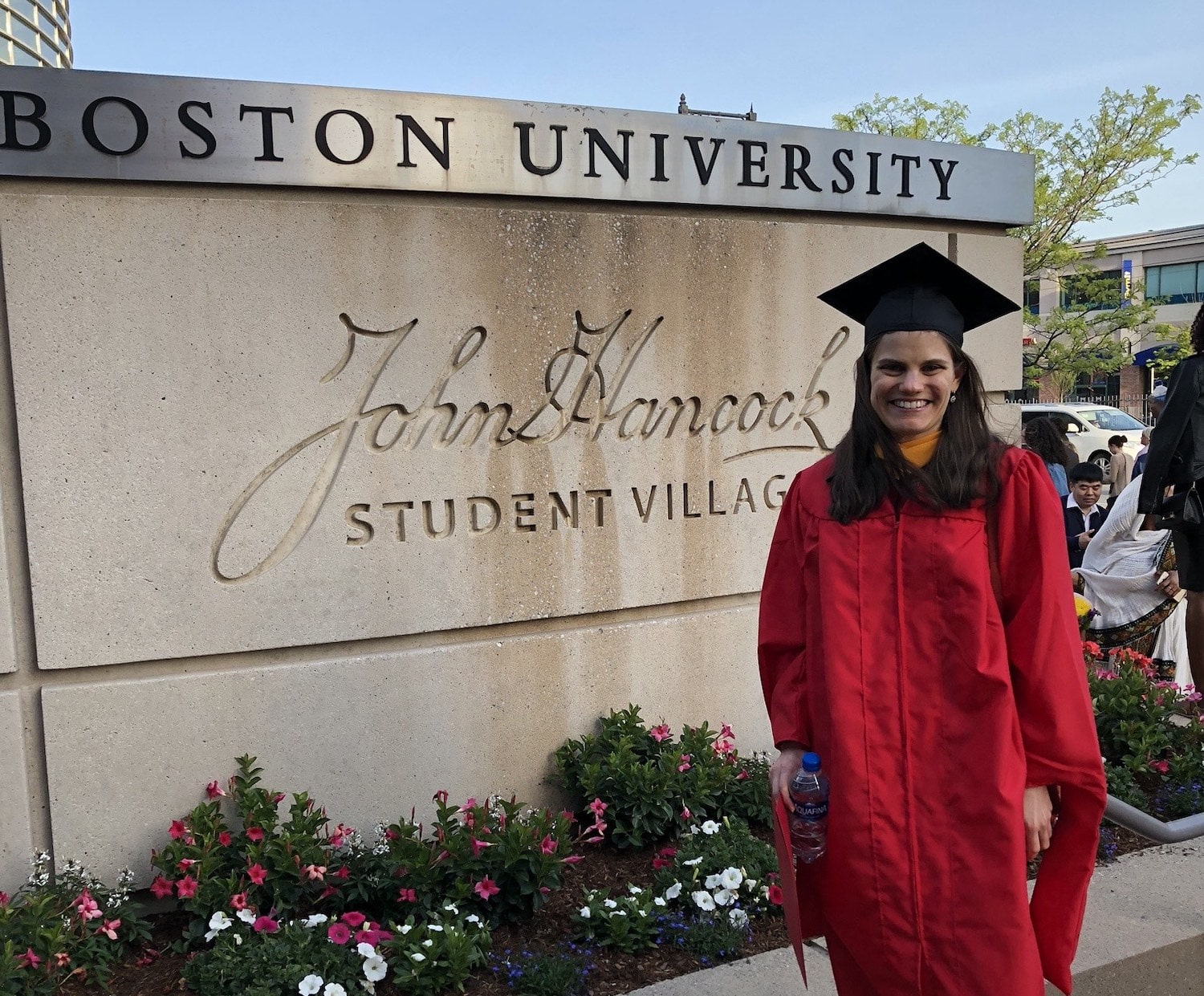I began classes in Boston University’s Master of Science in Health Communication program in early September 2016. I had chosen the program because of my love for both health care and advertising and planned to work in health care marketing. I quickly fell in love with the coursework, including “Writing for Health Communication” and “Research Methods.” Maybe my path would lead me to another type of career than the one in marketing I had been planning.
Then I was diagnosed with stage I papillary thyroid cancer in January 2017, just four months into my graduate program. I had no idea what my life would look like from then on. No one had the answers to my questions. Would I have to leave my job as an administrative coordinator at a hospital, where I came face to face with patients every day? Would I be putting them or myself at risk? Would I have to stop going to school, too?
Thankfully, I felt no symptoms. I decided to stay in school and continue working. I knew my next step was to find a doctor who could tell me what my next steps would be in terms of treatment, but the doctor who came highly recommended had a wait time of five months. I made the appointment, assured that the cancer was slow-growing and that waiting a few months wouldn’t put me at greater risk. But what would I do about school?
I carefully wrote emails to all of my professors informing them that I had been diagnosed with cancer and that I might need extensions on some assignments. I was reluctant to tell them, fearing discrimination because of my health condition. But the professors were understanding and offered any type of assistance I might need.
For each class, we had to write discussion posts based on a topic being discussed that week, and the professor encouraged us to include our personal experiences. I now faced the decision of whether to share my diagnosis with my peers. What would they think? I decided to hold back by saying I had a chronic condition without actually mentioning the “C word.”
Some students with serious conditions, such as Type 1 diabetes, came forward and shared their experiences. “A cancer diagnosis is different,” I thought. “When people hear the word cancer, they don’t know what to say. Sometimes they don’t say anything.” I already felt like I was a burden, my diagnosis impeding not only my life, but the lives of my co-workers, friends and family. I didn’t want to put stress on people I didn’t really know.
I ended up telling a few of my classmates about my diagnosis in private on social media and received immensely supportive responses, but I didn’t share my diagnosis more broadly. I started treatment in May 2017, including two surgeries and radioactive iodine therapy, and was able to continue with both my job and schooling.
In December 2018, I completed the graduate program. As I checked my semester grades and final grade point average, I cried. I had accomplished something a lot of people, especially cancer patients, would not have been able to do. My graduate education had come to a close, but the newest chapter in my career was taking off. I knew exactly what I wanted to do, and cancer had helped me discover that.
As a result of what I learned in school and my experience as a cancer patient, I have focused on meeting needs I felt were not being met when I was going through treatment. I currently work as a scientific data analyst, abstracting clinical trial protocols from cancer centers across the U.S. and translating scientific jargon into lay-friendly language that can help patients make an informed choice about whether to join a clinical trial. Patient education is now one of my passions, along with patient-provider communication and communication research. Ultimately, I hope to make improvements in these fields, specifically in oncology, in order to create better health outcomes for cancer patients. And it’s all because of one word, one diagnosis, that came at the “right” time.
Cancer Today magazine is free to cancer patients, survivors and caregivers who live in the U.S. Subscribe here to receive four issues per year.





